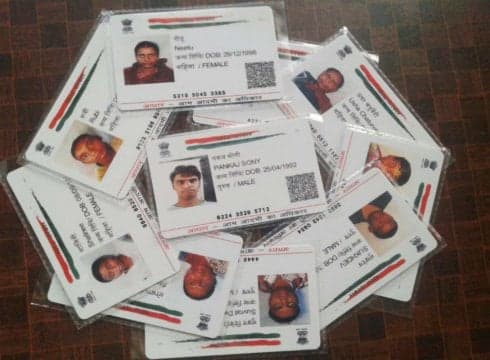Around 20 Nations Have Shown Interest In Adopting Aadhaar Identification Model
Inc42 Daily Brief
Stay Ahead With Daily News & Analysis on India’s Tech & Startup Economy
Amid the much controversy related to privacy and data security, India has found international takers for its Unique Identification (UID) project also known as Aadhaar. Russia, Morocco, Algeria, and Tunisia have indicated their initial interests in developing the Aadhaar kind of identification system in their own territories.
In order to promote the UID model overseas with the facilitation support of the World Bank, Government of India has formed a body comprising Ministry of External Affairs, Department of Information Technology and Telecom Regulatory Authority of India (TRAI).
The ministry of external affairs also included Aadhaar on the agenda of the then Indian vice-president (Now former) Hamid Ansari’s visit to Morocco and Tunisia, last year. In the quest of developing a digitally enabled national population register, Morocco has even added the provisions of biometric identification and authentication on the recommendations made by India.
As per a Factor daily report, there have been about 20 countries including the South-Asian tigers like Indonesia, Thailand, Malaysia, Philippines, and Singapore, which have evinced their keen interest in developing national identity system based on UID model of India.
Also, Sri Lanka has been planning to introduce the Aadhaar-like model in collaboration with India, the talks for which are already reached high stage between the respective governments as reported by The Hindu. Minister of Telecommunication and Digital Infrastructure of Srilanka, Harin Farnando has claimed that the Srilankan economy could save $2 Mn per day via digitising their operations.
Russia has recently organised a seminar on financial inclusion which witnessed the participation of representatives of the European Union and IMF. RS Sharma, Chairman, TRAI who has also been UIDAI director-general in past (2009-13) addressed the seminar from the Indian side. In an interview given to LiveMint, Sharma has confirmed that Bank of Russia has conceived of an identification project based on biometric information.
It is to be noted that Aadhaar model is nothing but the state of art technology-enabled digital identification and authentication system which not only helps in digitising the national population records but strikes hard at poverty and inclusion related issues. Its true potential lies in its ability to directly impact the poverty alleviation mission of the Indian government.
As per the claims made by the government, around $4.08 Bn (INR 26K Cr) has been saved through direct benefit transfers to the Aadhaar linked bank accounts on LPG subsidy alone, eliminating 3 Cr fake/ duplicate LPG accounts between 2014-2016. Aadhaar could be a game changer in identification and inclusion of rightful beneficiaries, exclusion of ghost claimers, elimination of middlemen and plugging of leakages for transferring social welfare incentives related to various government sponsored schemes. This way Aadhaar has been the lifeline for the government for pushing its financial inclusion and a less-cash digital economy agenda.
Recognising that potential, earlier the World Bank heaped praises on Aadhaar in its World Development Report, 2016 and expressed its confidence by saying that the model was worth replicating into other countries. While calling the UID project an example of technology-driven economic transformation model, the World Bank has been acting as a facilitator of the Aadhaar for other countries. Apart from that, United Nation as part of its sustainable development goals agenda has expressed its desire for the member countries to issue legal identification system by 2030.
It is to be noted that the entire Aadhaar project has remained controversial since its inception. The privacy rights activists have been fiercely opposing it on the grounds of violation of the right to privacy, a possibility of data breach and abuse of biometric information. Further, PILs were filed in the Supreme Court challenging the government decision which mandated Aadhar for availing subsidy or welfare benefits. A constitutional bench of the apex court is set to pass verdict on Aadhar this month which was challenged on the grounds of weak data protection laws and violation of the right to privacy which is a fundamental right. Recently a report of The Tribune, which claimed that it took just INR500 and 10 minutes to have free access to Aadhaar data caused a wild storm in the media corridors.
So far, it remains unclear how the Indian government plans to collaborate with other countries. No official communication has been made regarding the nature of collaboration whether it would be a direct technology transfer or in form of technological, storage or managerial assistance.
Though it would remain interesting to see how many of these leads could be translated to their logical conclusion and in what form but certainly the present dispensation in its efforts to impart international stature to Aadhaar has not only immensely boosted its credibility and acceptance but also successfully silenced the detractors and sternest critics of Aadhaar at least for the time being!
[The development was reported by LiveMint]
{{#name}}{{name}}{{/name}}{{^name}}-{{/name}}
{{#description}}{{description}}...{{/description}}{{^description}}-{{/description}}
Note: We at Inc42 take our ethics very seriously. More information about it can be found here.


